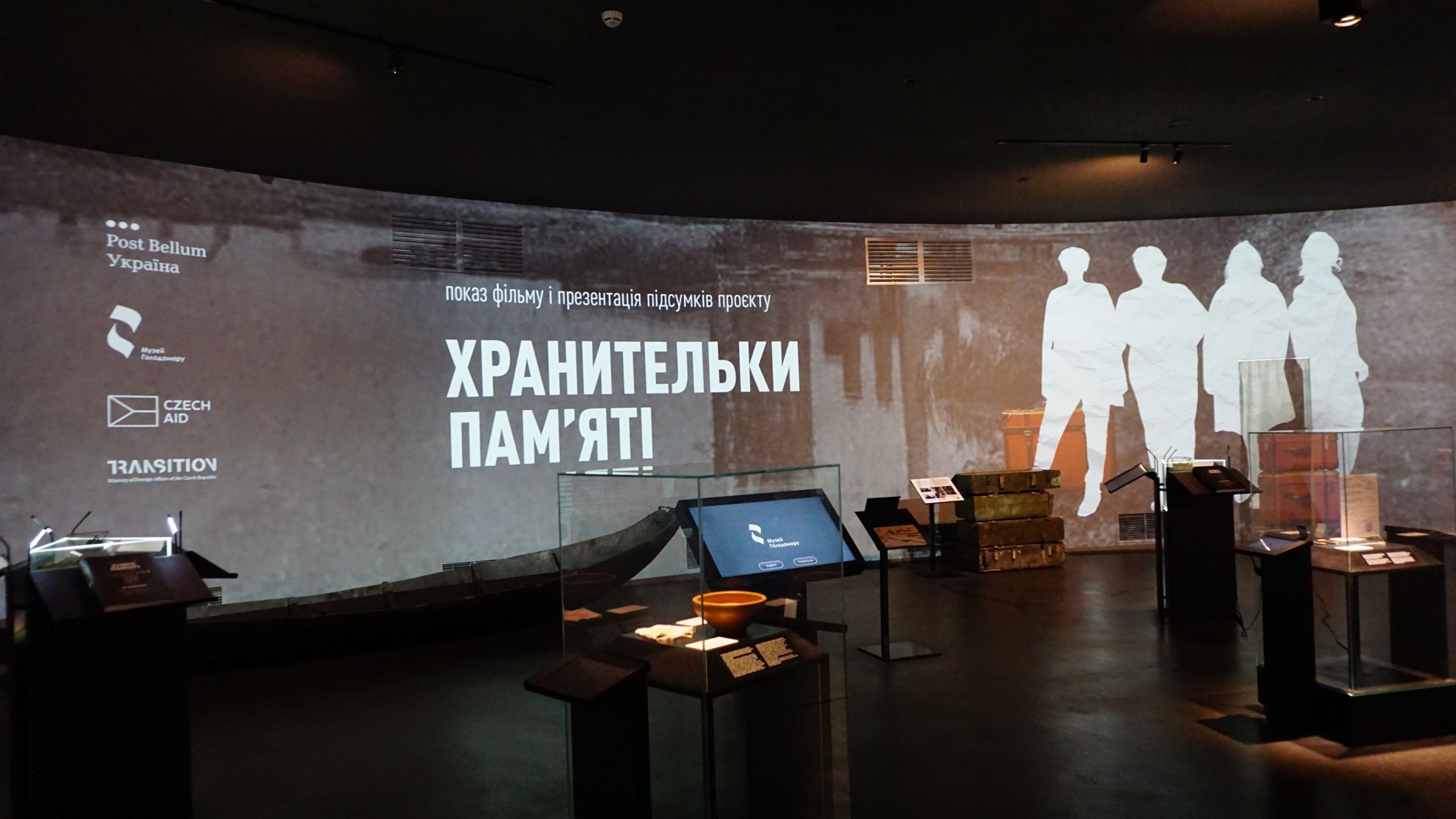Women’s Stories of the Donetsk Region: a film screening and discussion took place at the museum
On December 13, the Holodomor Museum hosted a presentation of the results of the project “Memory Keepers: The Experience of Ukrainian Women in the Donetsk Region in the 20th-21st Century,” which included a screening of the documentary film “Since 2014: Women’s Stories of the Donetsk Region.” The event was attended by historian and writer Olena Stiazhkina, journalist and one of the film’s characters Oleksandra Papina, the author of the idea and producer of the project Yevheniia Nesterovych, and Ambassador Extraordinary and Plenipotentiary of the Czech Republic to Ukraine Radek Pech.
“The Post Bellum-Ukraine team worked on the project we are presenting today throughout 2024, together with the Czech Post Bellum and numerous partners. This is a large interdisciplinary project based on oral history interviews. In total, 27 interviews with Kramatorsk residents were recorded,” says Yevheniia Nesterovych. “It is crucial for us to strengthen the visibility of women in modern Ukrainian history, to show a female perspective on important historical events.”
The documentary film “Since 2014: Women’s Stories of the Donetsk Region” was based on interviews with four residents of Kramatorsk. The women shared memories of the city’s occupation and liberation, stories of courage and mercy that will not leave viewers indifferent.
After the screening, everyone present was invited to a joint film discussion.
“We had to address the stereotype regarding the “un-Ukrainian nature of the East” by emphasising that, in fact, Ukrainians have always lived in this region. Unfortunately, due to various circumstances, their voices have historically been weak. When they told us to ‘hear Donbas,’ we should have heard not ‘Donbas,’ but the Donetsk region,” Oleksandra Papina noted.
“Olena Stiazhkina spoke about the importance of oral history: Is it worth documenting oral interviews with witnesses of the Russian-Ukrainian war now, even though it hurts? More likely yes than no. One American psychiatrist conducted research with the participation of Holocaust victims. They told her this: “For the first 5 years, we wanted to tell someone, but no one wanted to hear, and those who wanted to could not understand us. In the end, we had been silent for two decades until the Holocaust topic became the central theme of European remembrance.” Now is the period when we, Ukrainians, want to speak, and we need to use it. After our Victory, a period of silence may come. Not because we will have nothing to say, but because all resources will be devoted to the country’s restoration.”
